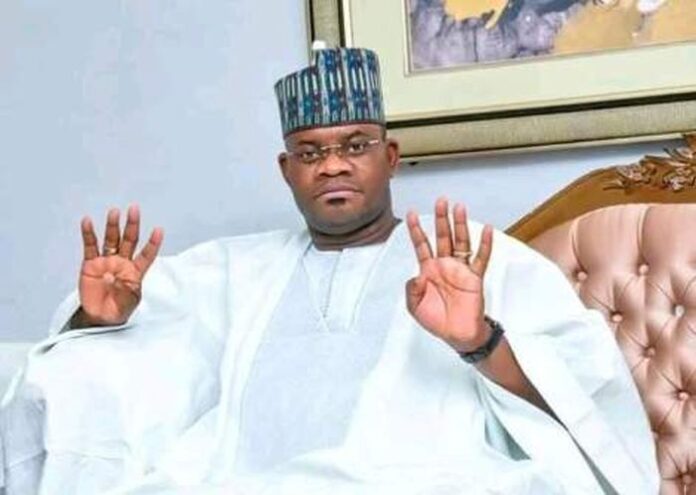Former Governor Yahaya Bello of Kogi State has sounded the alarm regarding the intrusion of Economic and Financial Crimes Commission (EFCC) operatives into his Abuja residence.
He has urgently appealed to President Bola Tinubu to intervene and compel the anti-corruption agency to respect a standing court order issued by the Kogi State High Court of Justice on February 9, 2024.
In the statement released by the Yahaya Bello Media Office, Bello expresses dismay over the EFCC’s actions, which he claims directly violate the court’s injunction in Suit No. HCL/68M/2024. This injunction bars the EFCC from engaging in any form of harassment, arrest, detention, or prosecution of Bello until the resolution of the underlying fundamental rights enforcement action.
Despite the impending court judgment on the same day, the EFCC’s incursion into Bello’s Abuja residence signifies a blatant disregard for the legal order. The statement underscores the EFCC’s defiance by noting that it was served with the court order on February 12, 2024, and subsequently filed an appeal against it. The appeal, along with a motion for a stay of execution, is awaiting hearing at the Court of Appeal Abuja division.
The statement voices concern over the potential political influence on the EFCC’s actions, insinuating that the agency may be manipulated as a tool for settling scores rather than upholding justice. It warns against the ramifications of law enforcement agencies flouting court orders, emphasizing the adverse impact on the nation’s economy and legal system.
Furthermore, the statement accuses the EFCC of pursuing Bello with unsubstantiated allegations dating back to before his tenure as governor. It criticizes the agency’s conduct as detrimental to the credibility of the anti-corruption fight, highlighting the irony of a law enforcement agency itself disregarding legal directives.
Concluding, the statement urges President Tinubu to intervene promptly, emphasizing the imperative of ensuring that the EFCC operates within the bounds of the law and respects judicial processes. It underscores the principle of fairness and the critical role of legal integrity in upholding justice and combating corruption effectively.




